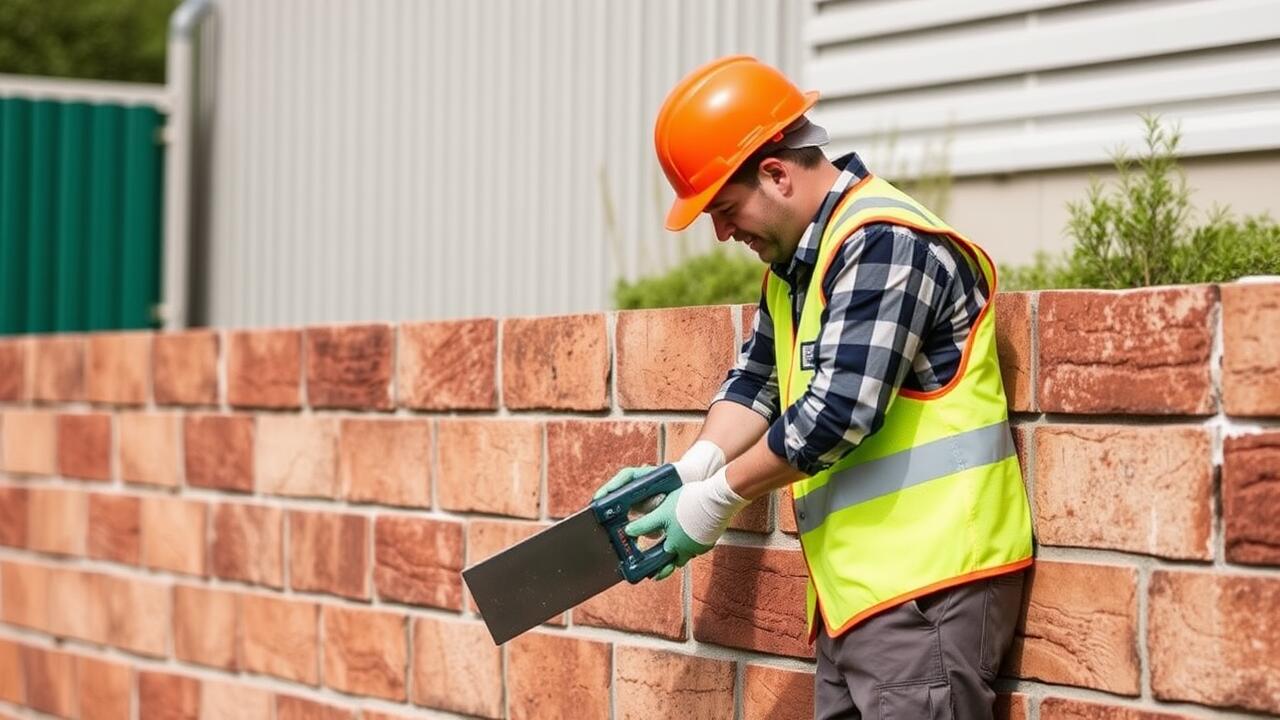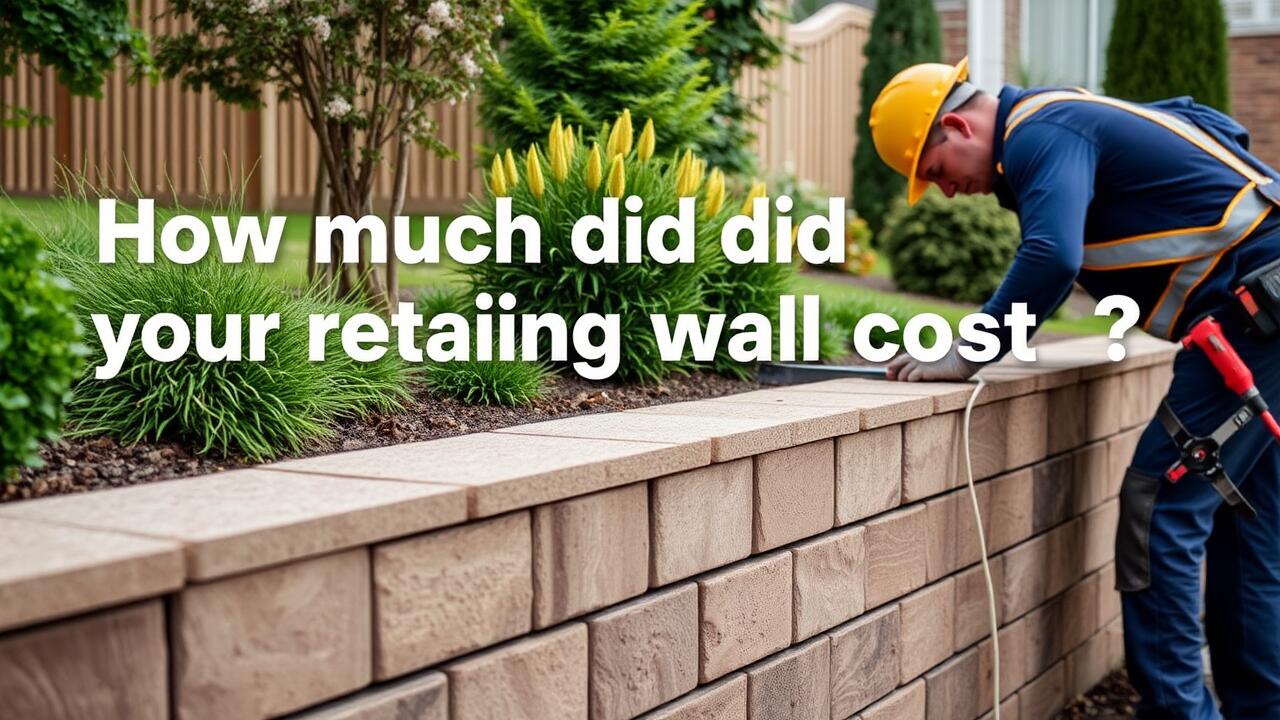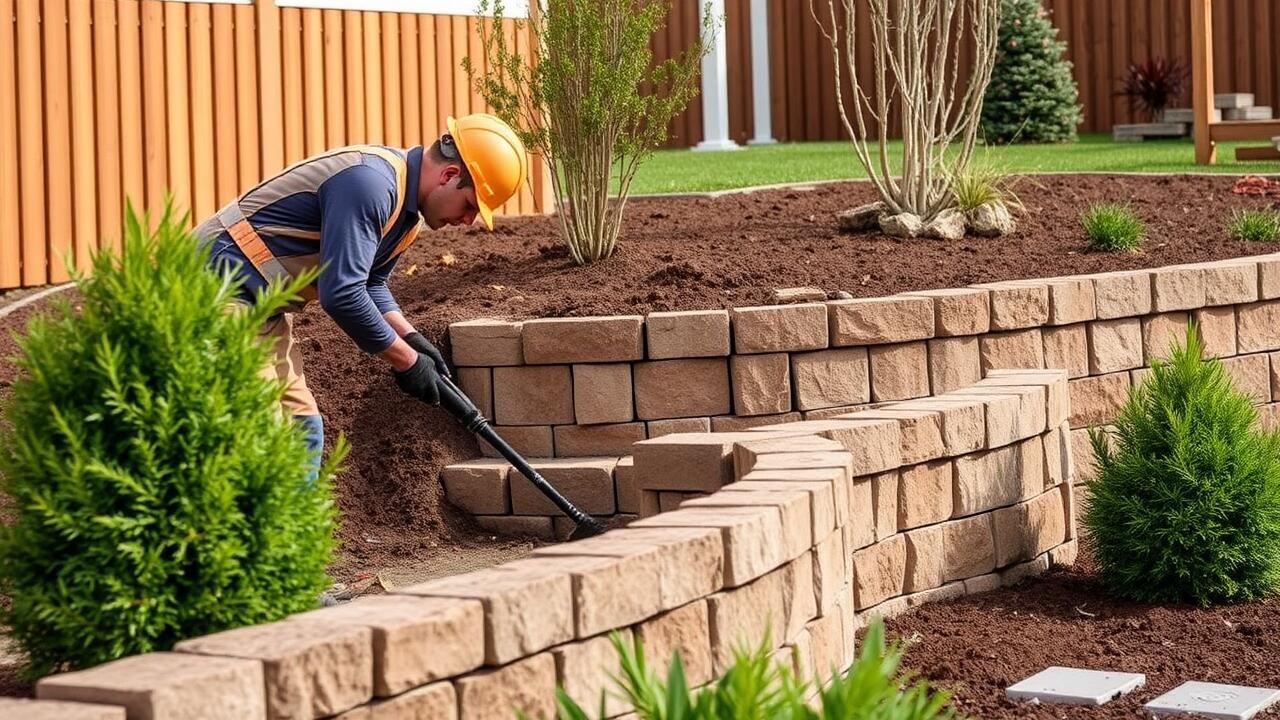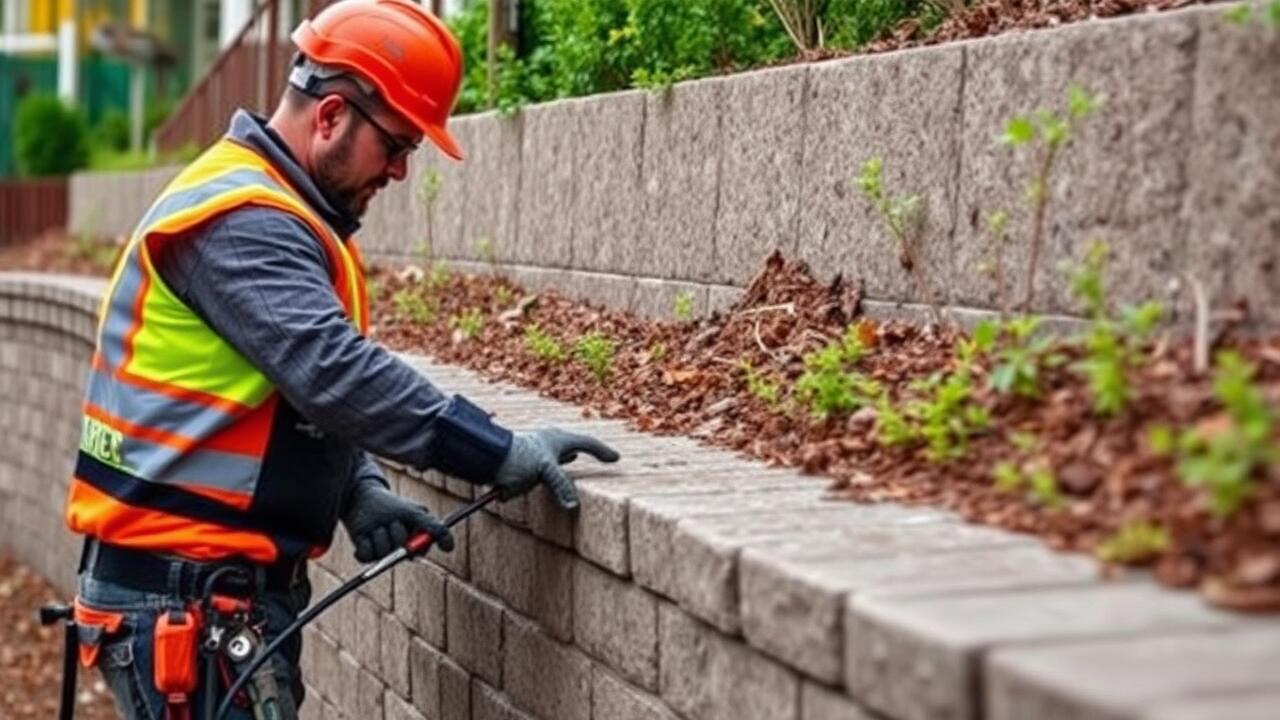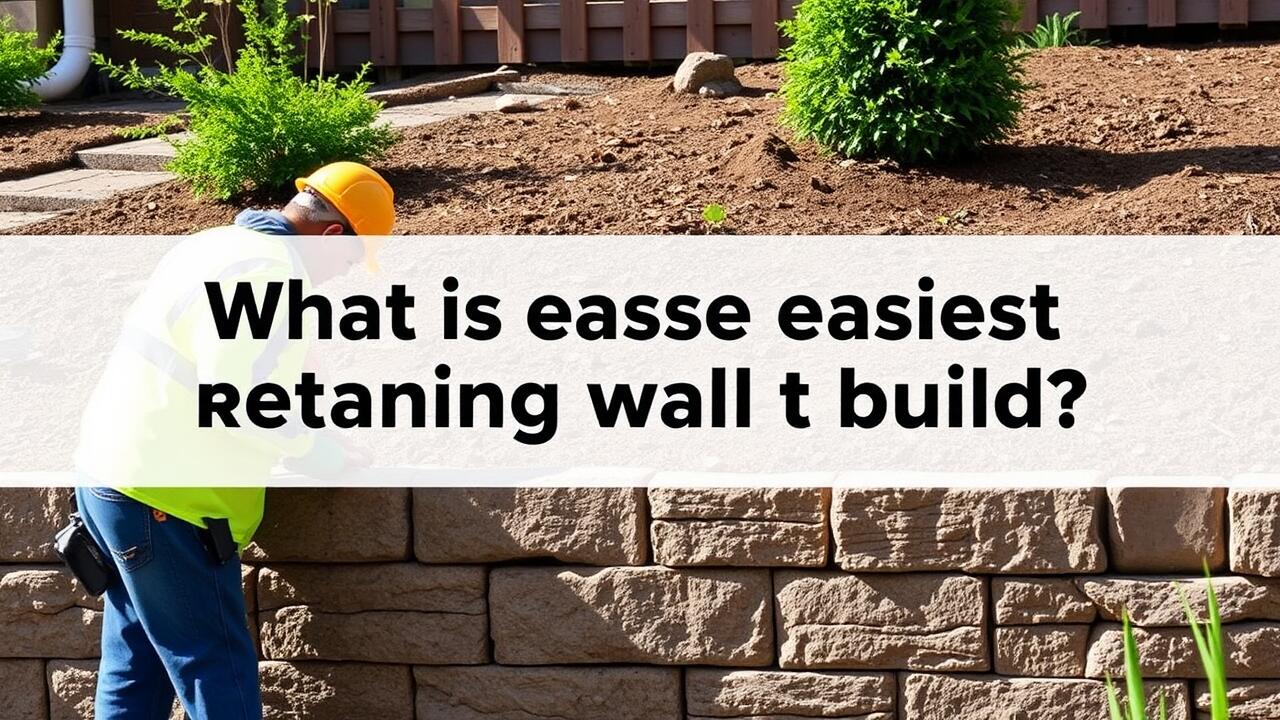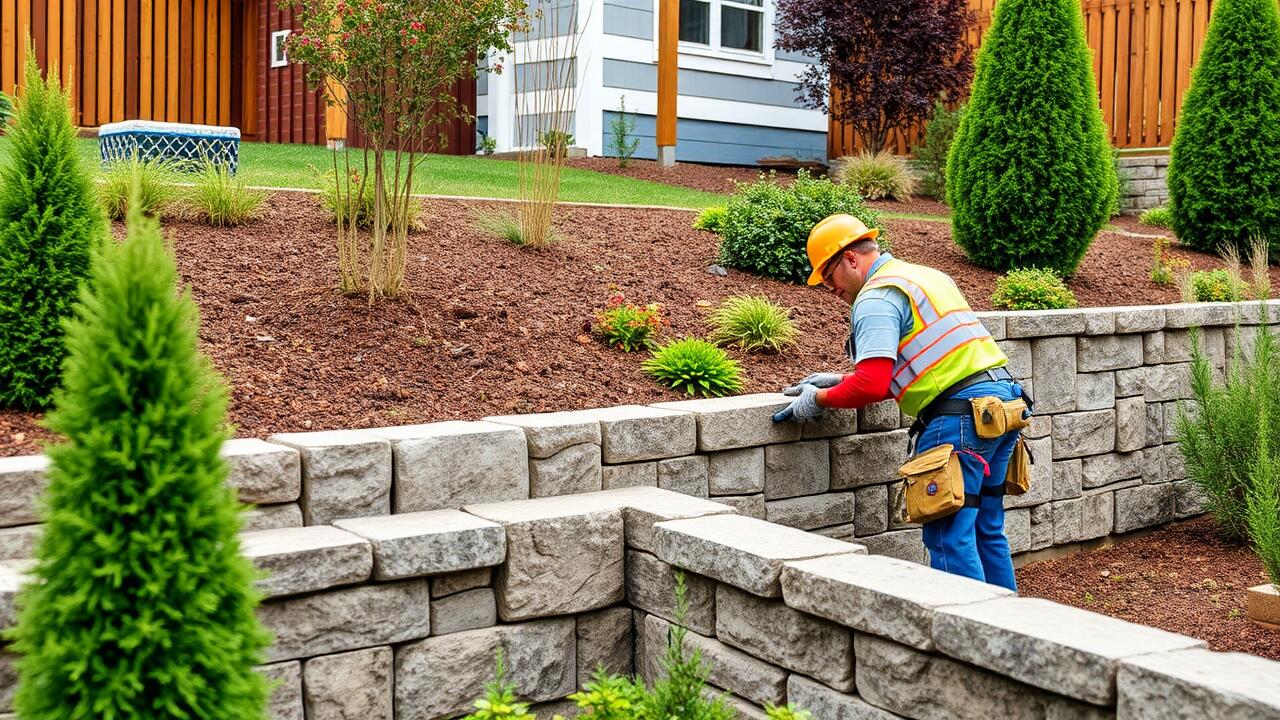
Stone Retaining Walls
Stone retaining walls offer both functional and aesthetic benefits for landscaping. The cost of these structures can vary significantly based on the type of stone used, the wall's height, and the complexity of the design. Natural stone tends to be more expensive, while manufactured options can provide a similar look at a lower cost. Homeowners often appreciate the organic appearance and durability that stone walls bring to their properties, making them a popular choice despite their higher price point. For those considering installation, searching for "Retaining Wall Installation near me" can help locate experienced contractors who specialize in stone construction.
When planning a stone retaining wall, it is essential to factor in additional costs such as drainage, backfill, and the potential need for permits. These elements can increase the overall expenditure, so it's important to budget accordingly. The investment in a stone retaining wall can enhance property value and provide long-lasting support in managing soil erosion and landscape features. Additionally, consulting with local experts through a search for "Retaining Wall Installation near me" can help ensure that the design meets both aesthetic preferences and structural requirements.
Pricing and Aesthetic Value
Stone retaining walls offer a unique blend of durability and aesthetic charm, making them a popular choice for homeowners. The natural texture and colors of stone can complement landscaping, enhancing the overall visual appeal of a property. The price of stone retaining walls typically ranges from $30 to $100 per square foot, influenced by factors such as the type of stone used and the complexity of the installation. Homeowners often appreciate the long-lasting quality of stone, which can elevate the value of their property.
While the upfront costs of stone walls can be high, many find that the investment pays off in terms of longevity and visual interest. For those considering this option, researching "Retaining Wall Installation near me" can help identify local professionals experienced in creating custom designs. This search can lead to tailored solutions that fit both budget and style preferences, ensuring that the selected retaining wall not only fulfills its structural purpose but also enhances the landscape.
Vinyl Retaining Walls
Vinyl retaining walls have gained popularity due to their low maintenance requirements and versatility. These walls are often made from recycled materials, making them an environmentally friendly choice. Available in various colors and styles, vinyl walls can enhance the aesthetic appeal of any landscape while providing effective soil support. Homeowners may find that these walls are particularly resistant to rust, rot, or insect damage, ensuring a longer lifespan compared to wooden alternatives.
When considering the financial aspect of vinyl retaining walls, the initial cost may be higher than some traditional materials. However, their durability translates to reduced maintenance costs over time, making them a cost-effective solution in the long run. Those searching for "Retaining Wall Installation near me" can expect to find a range of contractors offering competitive pricing and professional advice on installation, ensuring a proper fit for their specific landscaping needs.
Cost Efficiency and Longevity
Vinyl retaining walls are often praised for their cost efficiency. The initial installation price can be lower than traditional materials like stone or concrete, mainly because vinyl is lightweight and easier to handle. This reduced labor cost contributes to overall savings. Additionally, vinyl walls require minimal maintenance compared to other types, which can make them more appealing to those looking to minimize long-term expenses. Investing in a vinyl wall might result in lower upkeep costs over the years, aligning well with budget-conscious projects.
Longevity is another crucial factor that enhances the appeal of vinyl retaining walls. They are designed to withstand harsh weather conditions, resist rotting, and avoid insect damage. Homeowners can expect a lifespan of 50 years or more with proper installation. When searching for "Retaining Wall Installation near me," it’s essential to consider the longevity of materials as part of the decision-making process. Choosing a durable option like vinyl can provide peace of mind, knowing that the investment is both economical and built to last.
Cantilever vs. Gravity Retaining Walls
Cantilever and gravity retaining walls each serve the purpose of holding back soil, yet they do so with different engineering principles. A cantilever wall uses a lever arm and typically consists of reinforced concrete that extends into the soil at the base. This design allows it to resist overturning forces effectively, making it suitable for taller structures or locations with significant lateral pressure. Gravity walls, on the other hand, rely on their weight to resist movement and may be made from stone or concrete masonry. Their bulk and mass make them stable, but they are often limited to shorter heights.
When considering the cost of installation, cantilever walls tend to require a higher initial investment due to the materials and engineering involved. In contrast, gravity walls might be more economical, particularly for smaller projects. Homeowners interested in building either type may search for "Retaining Wall Installation near me" to find qualified contractors. Factors such as site conditions, local regulations, and design preferences all contribute to the final costs, making it essential to evaluate both options carefully.
Cost Differences and Suitability
When considering the cost differences between cantilever and gravity retaining walls, it’s important to note the structural requirements each type necessitates. Cantilever walls often utilize less material, making them potentially less expensive in terms of materials. However, the installation process can be more complex, which might drive up labor costs. On the other hand, gravity walls rely on bulk and weight for stability, generally resulting in higher overall material costs. This makes them suitable for larger loads, but potential buyers must weigh these factors against their specific project needs and budget considerations.
Suitability also varies significantly based on site conditions. Cantilever walls are ideal for sites where space is limited and soil conditions are relatively stable. These walls require less excavation and can be installed in tighter areas. Gravity walls offer a higher degree of stability in areas with poor soil conditions but demand larger footprints. For those exploring options for their landscape, searching “Retaining Wall Installation near me” can provide local expertise in assessing both cost and suitability for specific projects.
FAQS
What factors influence the cost of retaining walls?
The cost of retaining walls can be influenced by several factors, including the type of materials used, the height and length of the wall, the complexity of the design, site conditions, and labor costs.
Are stone retaining walls more expensive than vinyl retaining walls?
Generally, stone retaining walls tend to be more expensive than vinyl retaining walls due to the cost of materials and the labor involved in installation. However, stone walls offer greater aesthetic value and durability.
How long do vinyl retaining walls typically last?
Vinyl retaining walls can last between 25 to 50 years, depending on the quality of the materials used and the environmental conditions they are exposed to. They are known for their cost efficiency and low maintenance.
What are the main differences between cantilever and gravity retaining walls?
Cantilever retaining walls use a lever arm to resist pressure from soil and require less material, making them typically less costly. Gravity retaining walls rely on their weight to hold back soil, which can increase material costs but may be more suitable for certain applications.
Is it worth investing in a more expensive retaining wall?
Investing in a more expensive retaining wall can be worth it if you prioritize durability, aesthetic appeal, and long-term maintenance savings. Higher-quality materials may also increase property value and enhance landscaping.
